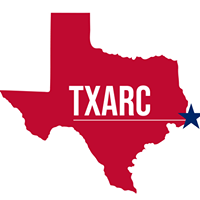Bastard Nation: The Adoptee Rights Organization
Phone 614-641-0294 /614-372-5535
www.bastards.org @bastardsunite
Submitted Testimony on H3775
DO NOT PASS: Amended bill
Senate Committee on Medical Affairs
Submitted by Marley E. Greiner, Executive Chair
April 15, 2018
Bastard Nation: the Adoptee Rights Organization is the largest adoptee civil rights organization in the United States. We support only full unrestricted and unconditional access for all adopted persons to their original birth certificates (OBC) and other government-held files pertaining to their adoptions.
In April 2017 we testified in support of H3775 because it was “clean:” an inclusive bill, that when passed would restore original birth certificate access to all South Carolina-born adoptees upon request without restriction or condition. We urged passage in both committee and chambers.
The bill went nowhere but was carried over to the 2018 session. It is live again, and due to egregious amendments that gut the intent of the original bill, as well as the rights of all the state’s adoptees–current and future– we have changed our testimony, from DO PASS to DO NOT PASS.
Two amendments were added recently in the House Committee on Medical, Military, and Public Affairs:
-
OBC access went from unconditional and unrestricted access for all South Carolina Adoptees no matter their date of birth or adoption to prospective access. That is, only those whose adoptions are finalized after the effective date of H3775, will be eligible to access their OBCs.
-
But, those adopted after the effective date of the bill cannot receive their OBC without explicit written biological parent(s) consent
In other words, those adopted before the effective date remain in their black hole and denied access. Those adopted after that date can be shoved into that black hole with them if a birthparent refuses to grant permission for the adoptee to access their own OBC. In effect, nothing will change for the thousands of South Carolina adoptees for whom this bill was originally created, and whose records are already sealed and will remain sealed. Moreover, onerous restrictions to access are placed on those later adoptees supposedly made eligible for access by the bill.
Ironically, 55 years ago the state sealed these same records retrospectively with little, if any, debate.
The original bill was intended to restore the right of OBC access to all South Carolina adoptees past, present, and future. The amendments turn the original bill on its head and continue to deny that right as automatic for all adoptees.The amendments create a discriminatory lopsided two-tiered system of access based on the date of adoption finalization and third-party consent that denies adoptees due process and equal treatment under law.
Privacy/Confidentiality v anonymity in Records Access
Unrestricted OBC access is not a “privacy” or “birthparent confidentiality” issue. In fact, “privacy.” “confidentiality,” and” anonymity” are not synonymous either legally or linguistically.
There is no evidence in any state that records were sealed to “protect” the reputation or “privacy” of biological parents who relinquished children for adoption. On the contrary, records were sealed to protect the reputations of “bastard children” and to protect adoptive families from birthparent interference.
Family Courts can and do grant the opening of OBCs and other adoption records requests without notice to or input from the birthparent(s). Moreover, courts have ruled that adoption anonymity does not exist. (Doe v Sundquist, et. al., 943 F. Supp. 886, 893-94 (M.D. Tenn. 1996).and Does v. State of Oregon, 164 Or. App. 543, 993 P.2d 833, 834 (1999)). Laws change constantly, and the state, lawyers, social workers, and others were never in a position to promise anonymity in adoption. In fact, in the almost 50 years of the adoptee rights movement, not one document has been submitted anywhere that promises or guarantees sealed records and an anonymity “right” to birthparents.
Identifying information about surrendering parents often appears in court documents given to adoptive parents who can at any point give that information to the adopted person. (In some states adoptive parents, at the time of adoption finalization, can petition the court to keep the record open.) The names of surrendering parents are published in legal ads. Courts can open “sealed records” for “good cause.” Critically, the OBC is sealed at the time of adoption finalization, not surrender. If a child is not adopted, the record is never sealed. If a child is adopted, but the adoption is overturned or disrupted, the OBC is unsealed.
Legislation needs to catch up with technological reality. We are well into the 21st century. The information superhighway grows wider and longer each day, and adoptees and their birth and adoptive families are riding it, utilizing the Internet, social media, inexpensive and accessible DNA testing services, and a large network of volunteer “search angels” to locate personal information for adoptees. Thousands of successful adoption searches happen each year—hundreds in South Carolina alone—making adoption secrecy virtually impossible. The minuscule number of birthparents or so-called “professional experts” who believe that restricted OBC access or no access equals adoption “anonymity” are greatly mistaken. The fact is, nearly all successful searches are done without the OBC and other court documents.
The Academy of Adoption and Assisted Reproduction Attorneys Join Adoptee Rights Advocates in Support of Records Access
For decades the highly influential Academy of Adoption and Assisted Reproduction Attorneys has been one of the strongest opponents of OBC access. Earlier this year, the organization reversed its policy. In a statement published on January 13, 2018, the AAARA announced that it supports and promotes “the inherent rights of adult adopted persons to their personal family information: and to have access to (1) original birth certificates, (2) agency records which relate to them and their biological family; and (2) court records of their adoption. http://www.adoptionattorneys.org/aaaa/academy-info/resolutions
Conclusion
There is no state interest in keeping original birth certificates sealed from adult adoptees to which they pertain. Nor does the state have a right or duty to mediate and oversee the personal relationships of adults. Those who claim a statutory right to parental anonymity through sealed records or through restricted access to them promote statutory privilege and state favoritism. South Carolina’s current statutes do not reflect current adoption best practice and culture. As we’ve noted above, the reality of technology and social media has been embraced eagerly by adoptees and their families in search of information.
The original H3775 got it right. The bill created equal birth certificate access for all South Carolina-born adoptees treating them as equal with the not-adopted, who unlike the adopted are not forced to undergo an onerous legal and often expensive process simply to get their own birth certificates. The original H3775 reflected the simple inclusive, unrestricted access process that nine states have on the books (Alabama, Alaska, Colorado, Hawaii, Kansas, Maine, New Hampshire, Oregon, and Rhode Island.)
The amended H3775 gets it wrong. It keeps current South Carolina adoptees in a black hole and creates two classes of adoptees–have nots and haves–those with no right to their state-held birth records, based on an arbitrary timeframe and those not yet conceived, born, and adopted who will have that right based on that same timeframe–unless a third party intervenes and refuses to give consent.
Records access is the keystone of adoption reform in the United States today. Please reject amended H3775. Vote DO NOT PASS on H3775 and settle for nothing less but a clean inclusive bill in the future. It’s the right thing to do.
Thank you!




 New York Adoptee Rights Coalition
New York Adoptee Rights Coalition











